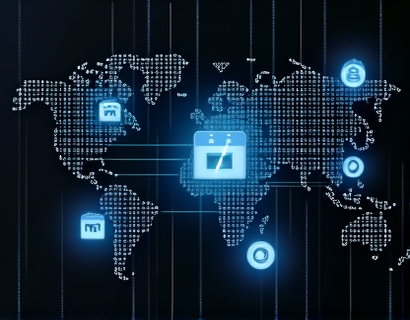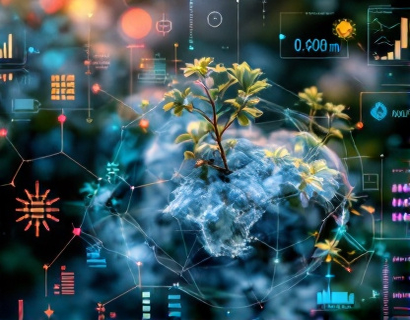Autonomous AI Agents: Maximizing Business and Individual Productivity Through Continuous Objective Management
In the rapidly evolving landscape of business and personal productivity, the integration of autonomous AI agents stands out as a transformative solution. These intelligent systems are designed to operate on behalf of individuals and organizations, continuously managing tasks and objectives to optimize efficiency and enhance productivity. This article delves into the capabilities and benefits of autonomous AI agents, providing practical strategies for harnessing their power in the modern world.
Understanding Autonomous AI Agents
Autonomous AI agents are sophisticated software entities that can perform tasks with minimal human intervention. They are equipped with advanced algorithms and machine learning models that enable them to learn from data, adapt to new inputs, and execute tasks autonomously. These agents can manage a wide range of activities, from routine administrative tasks to complex project management, all while continuously aligning with overarching objectives.
The Role of Continuous Objective Management
One of the core principles behind the effectiveness of autonomous AI agents is continuous objective management. This approach involves setting clear, measurable goals and ensuring that the AI agents are constantly working towards achieving these objectives. By doing so, businesses and individuals can maintain focus, prioritize tasks effectively, and adapt to changing circumstances in real-time. Continuous objective management ensures that efforts are not only directed towards immediate tasks but also contribute to long-term success.
Streamlining Operations with AI Agents
Autonomous AI agents can significantly streamline operations by automating repetitive and time-consuming tasks. For instance, in a business setting, these agents can handle email management, data entry, and scheduling, freeing up employees to focus on higher-value activities. In personal contexts, AI agents can manage calendars, reminders, and to-do lists, ensuring that individuals stay organized and on track. This level of automation not only saves time but also reduces the potential for human error, leading to more accurate and efficient outcomes.
Enhancing Efficiency Through AI-Driven Insights
Beyond automation, autonomous AI agents provide valuable insights that can further enhance efficiency. By analyzing vast amounts of data, these agents can identify patterns, trends, and areas for improvement. For businesses, this means better decision-making, optimized resource allocation, and improved operational workflows. Individuals can benefit from personalized recommendations and insights that help them manage their time and tasks more effectively. These data-driven insights empower users to make informed choices, leading to higher productivity and better results.
Providing a Competitive Edge
In today’s competitive market, the ability to maximize productivity is a key differentiator. Businesses that adopt autonomous AI agents gain a significant advantage by reducing operational costs, increasing output, and delivering higher quality services. These agents can work around the clock without fatigue, ensuring that tasks are completed promptly and efficiently. For individuals, the use of AI agents can lead to a more balanced work-life schedule, reduced stress, and the ability to achieve more in less time. This competitive edge is crucial for staying ahead in both business and personal endeavors.
Practical Strategies for Maximizing Productivity
To fully leverage the benefits of autonomous AI agents, it is essential to implement practical strategies that align with your specific needs and goals. Here are some actionable steps:
- Define Clear Objectives: Start by setting clear, specific, and measurable goals. Ensure that these objectives are aligned with your overall strategy and are communicated effectively to the AI agents.
- Choose the Right Tools: Select AI agents that are compatible with your existing systems and can integrate seamlessly into your workflow. Consider the specific tasks you want to automate and the level of intelligence required for those tasks.
- Monitor and Adjust: Continuously monitor the performance of AI agents and make adjustments as needed. Regularly review the outcomes and feedback to ensure that the agents are meeting your objectives and make improvements to their algorithms and processes.
- Train and Upgrade: Keep your AI agents updated with the latest machine learning models and data. Regular training helps them adapt to new challenges and improve their performance over time.
- Foster a Collaborative Environment: Encourage a culture where humans and AI agents work together harmoniously. This collaboration can lead to innovative solutions and a more dynamic work environment.
Case Studies and Real-World Applications
Several organizations across various industries have successfully implemented autonomous AI agents to boost productivity. For example, a large manufacturing company used AI agents to automate quality control processes, resulting in a 30% reduction in defects and a 25% increase in production speed. In the healthcare sector, AI agents have been deployed to manage patient data and schedule appointments, leading to more efficient patient care and reduced administrative burdens. On the individual level, professionals have utilized AI-powered personal assistants to manage their schedules, track projects, and receive actionable insights, significantly enhancing their productivity and work-life balance.
Challenges and Considerations
While the benefits of autonomous AI agents are substantial, there are also challenges and considerations to keep in mind:
- Data Privacy and Security: Ensuring the security of sensitive data is paramount. Implement robust security measures and comply with data protection regulations to safeguard information.
- Trust and Acceptance: Building trust in AI agents is crucial. Transparent communication about how these agents work and the benefits they provide can help overcome initial skepticism.
- Skill Development: As AI agents take over more tasks, there may be a need for employees to develop new skills. Invest in training and development programs to ensure your team can work effectively alongside AI technologies.
- Ethical Considerations: Address ethical concerns related to AI, such as bias in algorithms and the impact on employment. Ensure that AI agents are designed and used responsibly.
Future Trends in Autonomous AI Agents
The field of autonomous AI agents is rapidly evolving, with several trends shaping its future:
- Increased Autonomy: Future AI agents will become even more autonomous, requiring less human intervention and making more complex decisions independently.
- Integration with IoT: The Internet of Things (IoT) will play a significant role in enhancing the capabilities of AI agents, allowing them to interact with a broader range of devices and systems.
- Personalization: AI agents will become more personalized, adapting to individual preferences and behaviors to provide tailored support and insights.
- Collaborative AI: The development of collaborative AI systems that work seamlessly with human teams will become more prevalent, fostering a synergistic work environment.
Conclusion
Autonomous AI agents represent a powerful tool for maximizing business and individual productivity through continuous objective management. By automating routine tasks, providing data-driven insights, and offering a competitive edge, these agents can transform the way we work and live. By implementing practical strategies and addressing challenges, organizations and individuals can fully harness the potential of AI agents to achieve their goals more efficiently and effectively. As the technology continues to advance, the future of autonomous AI agents looks promising, offering endless possibilities for enhancing productivity and success.











































